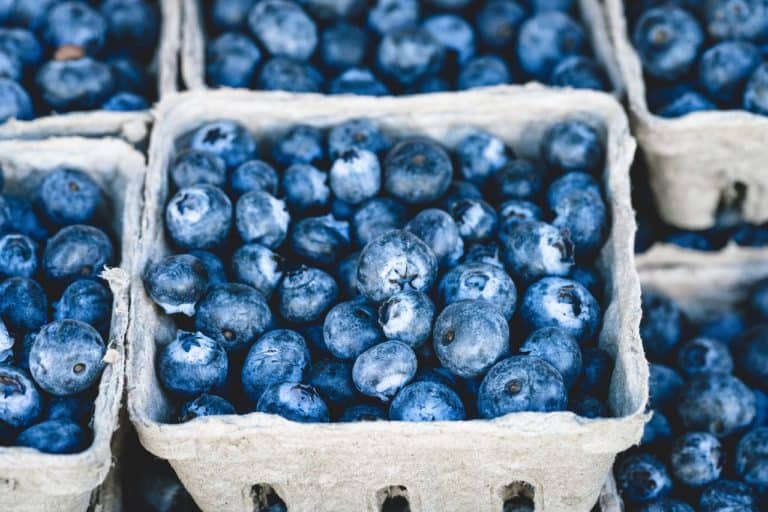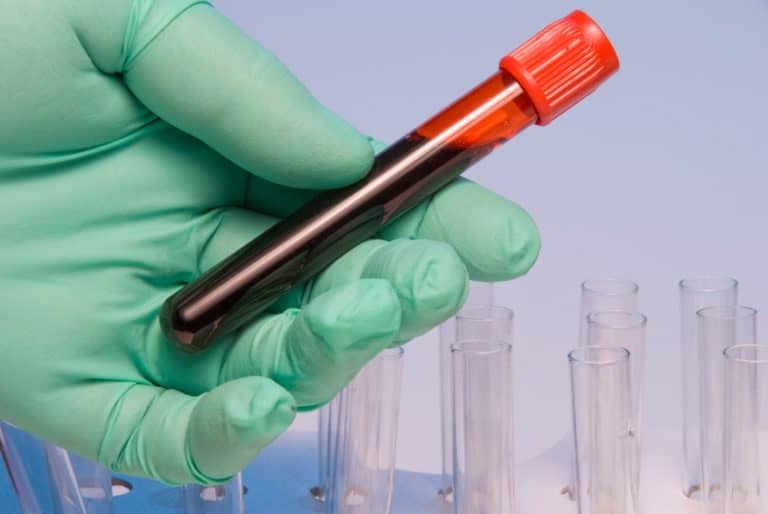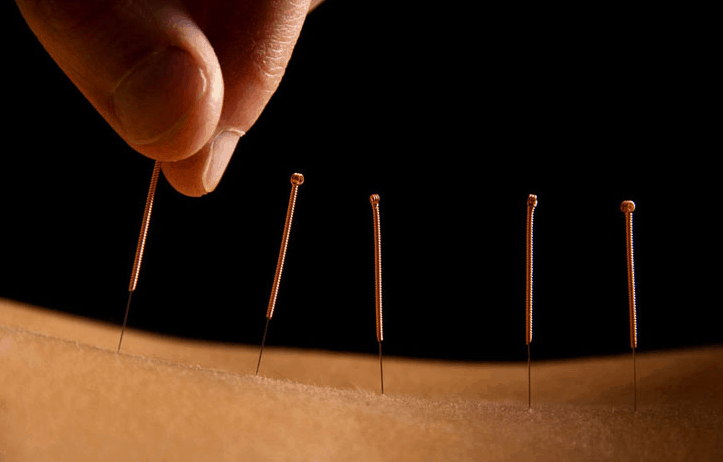An elevated PSA (prostate-specific antigen) can be an early warning sign that something is not quite right with the prostate, but it also may have no direct association with the prostate at all. That is, although there is the possibility that an elevated PSA value is an indication of prostatitis, an enlarged prostate, or prostate cancer, it also could mean you have sports-related inflammation of the prostate, a urinary tract infection, or a reaction to a medication you are taking, for example.
Generally, men want to have a low PSA value and to avoid undergoing any invasive testing, such as a prostate biopsy, because of a false positive PSA test result. To help prevent such a situation, you should help support and maintain your prostate and overall health by following these 10 things that can help lower PSA levels.
1. Get more lycopene, lysine and zinc in your diet
Of all the hormones that have an effect on the growth of the prostate, dihydrotestosterone (DHA) is one to watch because it stimulates insulin-like growth factor-1 (IGF-1), a hormone associated with abnormal cell growth and cancer development. One way you can inhibit DHT is by choosing foods that contain nutrients shown to do this naturally; namely, lycopene, lysine, and zinc. DIM supplements have also been shown to decrease estrogen levels which play a part in dihydrotestosterone production.
What Are The Top DIM Supplements?
According to a National Institutes study, lycopene inhibits IGF-1 growth in prostate cells by reducing the effect of DHT on production of the hormone. You can get more lycopene in your diet by including tomatoes (especially cooked ones), carrots, mangoes, and watermelon. Excellent sources of lysine (almonds, walnuts, pecans, peanuts) and zinc (cashews, spinach, kale, wheat germ, oysters, and white mushrooms) are also recommended.
Top Rated Lycopene Supplements on Amazon
2. Pump up on pomegranate
Although the pomegranate has a reputation as a challenging fruit because of its hard rind and unconventional inner pulp and seeds, it also can be tough when it comes to lowering PSA levels. Even in your choose to try pomegranate juice rather than tackle the fruit itself, you can still reap the benefits of this antioxidant-rich orb.
If you choose the juice, buy unsweetened, all-natural products, and avoid POM pomegranate juice which has 2x the sugar contained in a can of coke. Supplements are generally better if you want to avoid sugar altogether. “Source Naturals” has a powerful/sugar free pomegranate supplement that is available here.
In a study from the University of California, Los Angeles, researchers compared the effects of pomegranate juice on PSA doubling times in men who had rising PSA levels after they received therapy for prostate cancer. The participants were given either a placebo, pomegranate extract, or pomegranate juice in a double-blind, placebo-controlled, multi-center trial. Men who received the juice showed a significant increase in PSA doubling time from 12.7 months at baseline to 20.3. They also discovered that men with manganese superoxide dismutase AA genotype seemed to benefit the most from pomegranate extract, with PSA doubling time going from 13.6 months at baseline to 25.6 months.
3. Include more tomatoes in your diet
Here is a case in which cooked tomatoes are actually more beneficial than raw ones. Tomatoes are a very good source of the antioxidant lycopene, which has been shown in numerous studies to help lower PSA levels as well as a man’s risk of prostate cancer. For best results, choose tomato-based sauces, tomato paste, stewed tomatoes, tomato soups, and tomato juices and eat them often.
Among the research showing the positive impact of tomatoes and lycopene on PSA is one from Brazil, in which men with benign prostate hyperplasia who ate 50 grams of tomato paste daily for ten weeks saw a significant drop in PSA levels. Similarly, a University of Illinois study reported on 32 men with localized prostate cancer who consumed tomato sauce-based dishes for three weeks (30 mg of lycopene daily). PSA concentrations declined by 17.5 percent after following the diet.
See Also: Can Pizza Cure Prostate Cancer?
4. Steer clear of foods that harm the prostate
Various common foods can irritate the prostate and contribute to an elevated PSA level as well as an inflamed or enlarged prostate. Some of those foods and beverages include French fries and potato chips (because of acrylamide), alcohol, sugar and sugary foods, eggs, foods rich in saturated fats (e.g., meat, poultry), nonorganic meats, dairy products, and potatoes, canned foods (especially tomatoes) because of bisphenol A (BPA), and nonfermented soy products (e.g., edamame, tofu).
For now there is no research showing a direct correlation between consuming these foods and beverages and a rise in PSA. However, studies have indicated a relationship between these products and a greater risk of one or more prostate conditions characterized by an elevated prostate.
For example, a Harvard School of Public Health study noted that “red and processed meat may increase risk of advanced prostate cancer,” and that egg consumption “may increase risk of developing a lethal form of prostate cancer among healthy men.”
Skeptical about eggs and prostate cancer? You can read more here and here.
Here’s also a list of foods to avoid if you have prostate cancer or want to help reduce your risk of getting the disease.
5. Drop those extra pounds
Research on the impact of being overweight or obese on PSA levels is contradictory. Numerous studies have demonstrated that carrying excess weight is associated with a greater risk of prostate conditions characterized by an elevated PSA, including enlarged prostate, prostatitis, and prostate cancer. A study in Urology, for example, reported that obese Chinese men are at increased risk of having an enlarged prostate when compared with their normal weight peers. A 2014 study reported that being overweight was associated with more aggressive prostate cancer. Carrying extra weight generally also means your fat cells are producing more estrogen, which is a risk factor for prostate cancer.
Other studies, however, indicate that healthy men who are overweight or obese tend to have lower PSA levels.
Having an elevated PSA is not the only risk factor for prostate conditions, and since being overweight or obese is not beneficial for overall health, nor for prostate health, it’s generally recommended to maintain a healthy weight for optimal health.
6. Exercise regularly
Among the key things that lower PSA levels is plain old regular exercise. A combination of both aerobic activities for cardiovascular health and weight management as well as resistance exercise to strengthen and tone muscles is recommended. Since limited time to exercise is often given as an excuse to skip a workout, high-intensity interval training (HIIT) offers maximum benefits for minimal time. Activities that may increase your PSA should be noted also, such as riding bicycles, motorcycles, horses, and ATVs – as well as having too much sex (especially around the time of your PSA test)!
Proof of the positive effects of exercise on PSA levels comes from several studies. One is the National Health and Nutrition Examination Survey 2003-2006, which showed that for every one hour increase in sedentary behavior, men were 16 percent more likely to have an elevated concentration of PSA. On the other hand, men were 18 percent less likely to have an elevated PSA for every one hour increase in light physical activity.
7. Take nonsteroidal anti-inflammatory drugs
Aspirin and other nonsteroidal anti-inflammatory drugs (NSAIDS) have been shown to lower PSA levels. Not everyone should take these medications on a regular basis, so be sure to talk to your healthcare provider before you decide to use them and explain your reason for doing so.
What Are The Top Rated Aspirin Products?
In a recent Swedish study, researchers evaluated men who were either having their first PSA test or their first prostate biopsy. They found that men who took 75 mg/dose aspirin had a lower PSA (-3.9% change in concentration) when compared with men who didn’t take the NSAID. Similarly, in a Vanderbilt University Medical Center study, men who took aspirin had significantly lower PSA levels when compared with nonusers (7.3 ng/mL vs 8.0 ng/mL).
8. Reduce your intake of animal protein
Although getting an adequate amount of protein is important, the source of that protein is of concern as well. Meats, poultry, and dairy are typically high in protein but also cause the release of insulin-like growth factor-1 (IGF-1), a substance shown to promote the growth of cancer.
The death rate from prostate cancer among African-American men is nearly twofold that of white men. Black men also consume about twice as much of a substance called PhIP (2-amiino-1-methyl-6-phenylimidazo[4,5-b]pyridine), which is found in well-cooked beef and chicken, than their white peers. Researchers have discovered that high intake of PhIP is associated with an elevated PSA, “supporting the hypothesis that dietary intervention may help reduce PC risk.”
Replace animal protein with plant-based selections, such as beans and legumes, complete protein grains (e.g., amaranth, quinoa), nuts, seeds, fermented soy (small amounts), and spirulina.
9. Take supplements of quercetin
Quercetin, a flavonol and pigment found in fruits, flowers, and vegetables, has potent antioxidant and anti-inflammatory properties that have proved helpful in supporting prostate health. In fact, this natural supplement has demonstrated an ability to provide relief from symptoms of prostatitis. Recently, quercetin was tested as part of a natural formula that reduced PSA levels.
A group of 140 men who had negative prostate biopsy results but persistent elevated PSA levels were given a daily dose of an anti-inflammatory formula consisting of quercetin, bromelain, saw palmetto, and a nonsteroidal anti-inflammatory drug called nimesulide for three months. Total PSA declined from 7.3 ng/mL to 4.6 ng/mL in men who had histological findings of inflammation at their previous biopsy and from 7.2 ng/mL to 7.0 ng/mL in men who had no such findings. Talk to your healthcare provider about taking quercetin supplements or an all-natural prostate health formula that contains quercetin.
10. Adopt The Prostate Diet
The Prostate Diet is an eating plan that was developed based on intensive research of hundreds of scientific studies and nutritional data. Adoption of the 10 foundations that compose this plan can help support prostate health, fight inflammation, and keep PSA levels low. For best results—for prostate health as well as overall well-being–you should adhere consistently to all 10 guidelines.
- Eat lots of fruits and vegetables, organic whenever possible
- Consume healthy fats—monounsaturated, omega-3 fatty acids
- Choose plant protein over animal protein
- Drink green tea often
- Choose whole, natural foods over refined, processed foods
- Include foods rich in omega-3 fatty acids (e.g., cold water fatty fish, avocados, walnuts, almonds)
- Avoid or significantly limit certain foods and supplements (see “Reduce or avoid foods that harm the prostate above”)
- Choose prostate cancer killing foods and supplements, such as tomatoes, green tea, and vitamin D
- Stay well hydrated with pure water
- Consider taking natural supplements that support prostate health
Finally, you can stop your PSA rising by avoiding things that increase your PSA. Here’s a list of things to avoid doing in advance of your next PSA test.
Read more on the pros and cons of the PSA test for prostate cancer
Sources
Bogen KT et al. Highly elevated PSA and dietary PhIP intake in a prospective clinic-based study among African Americans. Prostate Cancer and Prostatic Disease 2007; 10(3): 261-69
Bowen P et al. Tomato sauce supplementation and prostate cancer: lycopene accumulation and modulation of biomarkers of carcinogenesis. Experimental Biology and Medicine 2002 Nov; 227(10): 886-93
Edinger MS, Koff WJ. Effect of the consumption of tomato paste on plasma prostate-specific antigen levels in patients with benign prostate hyperplasia. Brazilian Journal of Medical and Biological Research 2006 Aug; 39(8): 1115-19
Gallo L. The effect of a pure anti-inflammatory therapy on reducing prostate-specific antigen levels in patients diagnosed with a histologic prostatitis. Urology 2016 Aug; 94: 198-203
Liu X et al. Lycopene inhibits IGF-I signal transduction and growth in normal prostate epithelial cells by decreasing DHT-modulated IGF-I production in co-cultured reactive stromal cells. Carcinogenesis 2008 Apr; 29(4): 816-23
Loprinzi PD, Kohli M. Effect of physical activity and sedentary behavior on serum prostate-specific antigen concentrations: results from the National Health and Nutrition Examination Survey (NHANES), 2003-2006. Mayo Clinic Proceedings 2013 Jan; 88(1): 11-21
Morote J et al. Sedentarism and overweight as risk factors for the detection of prostate cancer and its aggressiveness. Actas Urologicas Espanolas 2014 May; 38(4): 232-37
Nordstrom T et al. The risk of prostate cancer for men on aspirin, statin or antidiabetic medications. European Journal of Cancer 2015 Apr; 51(6): 725-33. Things that can lower PSA levels in men.
Pantuck AJ et al. A randomized, double-blind, placebo-controlled study of the effects of pomegranate extract on rising PSA levels in men following primary therapy for prostate cancer. Prostate Cancer and Prostatic Diseases 2015 Sep; 18(3): 242-48
Richman EL et al. Egg, red meat, and poultry intake and risk of lethal prostate cancer in the prostate-specific antigen-era: incidence and survival. Cancer Prevention Research (Philadelphia) 2011 Dec; 4(12): 2110-21
Xie LP et al. Obesity and benign prostatic enlargement: a large observational study in China. Urology 2007 Apr; 69(4):680-84







